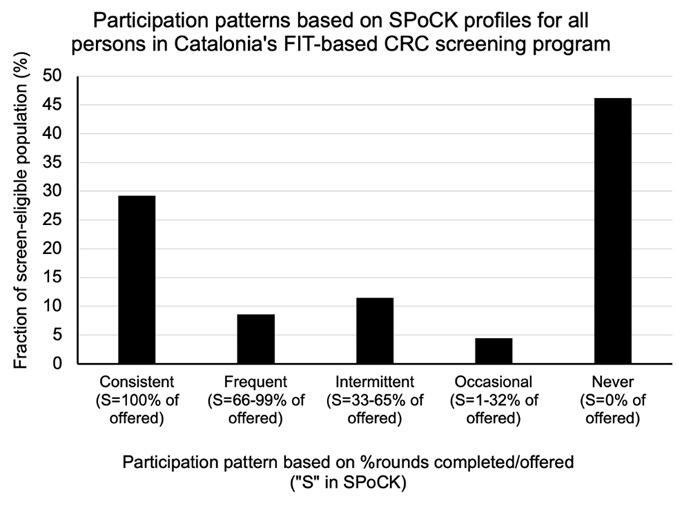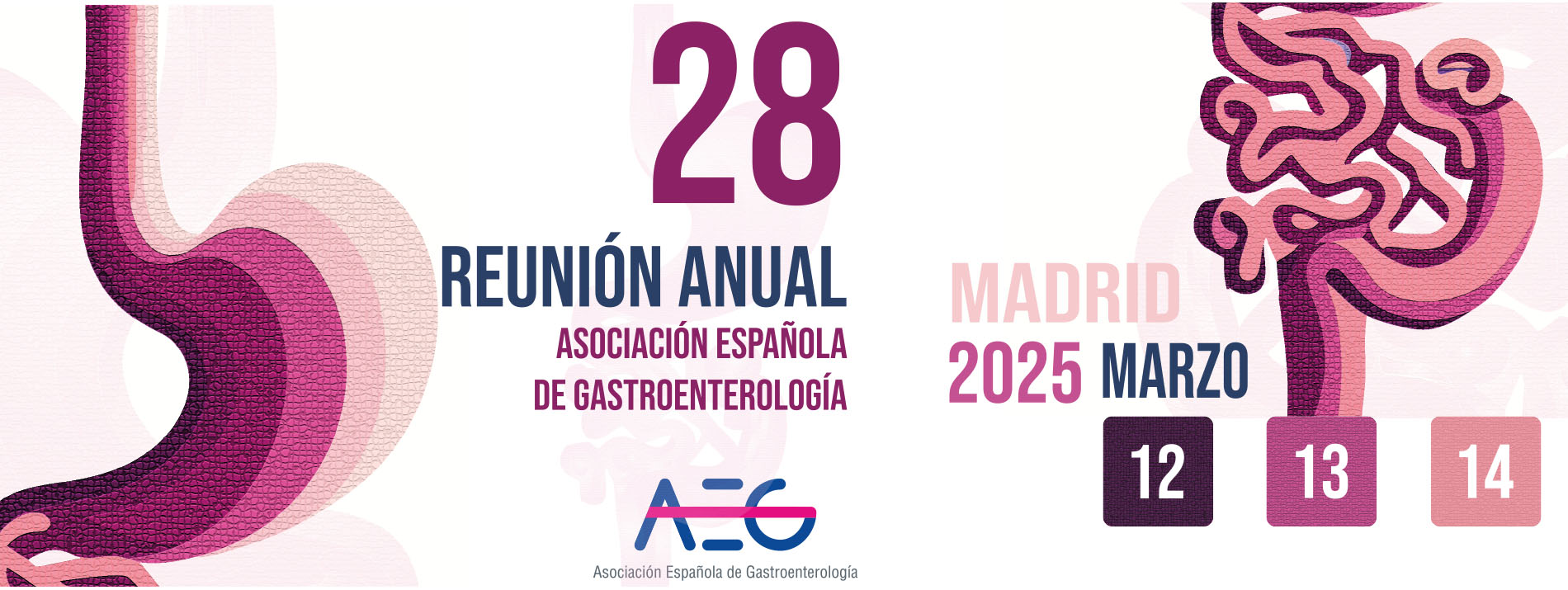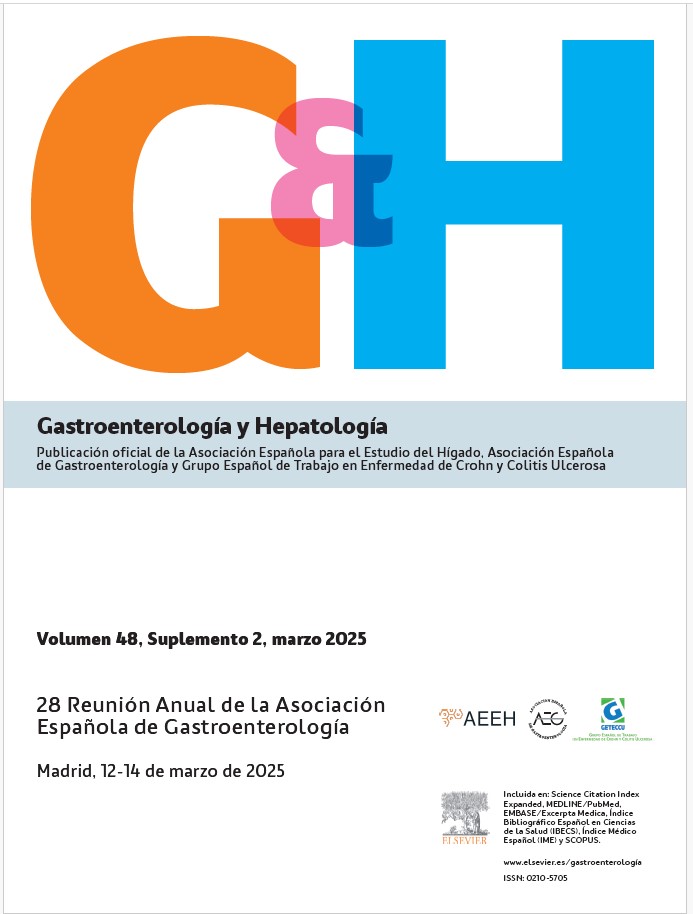P-144 - THE SPOC[K] PROFILE (SCREENINGS/POSITIVES/COLONOSCOPIES/[K]ANCER): A PRACTICAL SUMMARY OF INDIVIDUAL COLORECTAL CANCER (CRC) SCREENING PARTICIPATION AND RESULTS FOR CLINICAL CARE AND RESEARCH (TO "LIVE LONG AND PROSPER")
1Gastrointestinal Cancer Prevention Program, Stanford University School of Medicine, California, USA. 2Oficina de Cribratge de Càncer, Pla Director d'Oncologia, L'Hospitalet de Llobregat. 3Servicio de Epidemiología, Hospital del Mar, Barcelona. 4Servicio de Gastroenterología, Hospital Clínic de Barcelona.
Introduction: Personalized CRC risk-management requires detailed knowledge of a person’s screening history. Screening programs typically report global data, obscuring the impact of individual screening history, which is challenging to capture and reflect.
Objectives: To develop and assess the feasibility of determining for each individual a succinct profile that captures screening history and results, in the context of Catalonia’s FIT-based CRC screening program.
Methods: Inspired by obstetrics (GPA = gravida/para/abortus), we developed the “SPoC[K] profile” (Screenings/Positives/Colonoscopies/[K]ancer). SPoCK can be implemented in various forms, being the simple (for clinical purposes): e.g. S4/5P1/4CAA = 4 FIT completed/5 offered, FIT+ in 1/4 completed, colonoscopy with advanced adenoma [AA]. Feasibility and application: We used the screening program’s database to assign each invited person a SPoC profile. K for CRCs detected outside of screening is pending cancer registry linkage. SPoC profiles were aggregated into relevant groups, and used in an analysis of programmatic participation, FIT-positivity and yield.
Results: A SPoC profile was constructed successfully for each of 2,807,582 persons. A total of 23,544 unique SPoC profiles emerged. Based on the S component of SPoC, we determined FIT participation patterns in the program: 29.2% consistent, 8.6% frequent, 11.5% intermittent, 4.5% occasional, and 46.2% never (Figure).

Conclusions: It is feasible to construct SPoC for each individual in a granular database. While the possible SPoCK permutations are many, aggregation into useful groups (e.g. reflecting screening behavior over time) is feasible with simple rules. We believe that simple SPoCK is a useful summary for clinical practice, whereas a more complex SPoCK can facilitate cooperative research and publication of program-level data accounting for standardized screening history (promoting the classic ideal of Star Trek’s ever-logical Mr. Spock: “Live long and prosper”).









